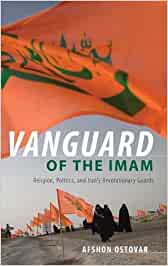Pavel Richter, the first CEO of Wikimedia Germany, systematically explans how Wikipedia works and what are its aims. It is a whole episode of human knowledge that was written with the creation of this online collaborative project. As in the case of other Encyclopedic endeavours, Wikipedia aims to offer a big slice of sharing knowledge to a larger amount of people. This happened before since the 18th century, but right now, it took over control of the information and Internet allowed it happened.
In the old times, those who were written the various articles were well known and their credentials were well known among the elites sharing knowledge, Nowadays, the writers are mostly anonymous, they may have or may have not an academic degree and some of their private experience and opinions can be easily shared. There are students, and even authors, using Wikipedia sources as academic references but I know at least one teacher from a prestigious American university that abhorrs such a practice.
The knowledge disorder created by Wikipedia - useful still unreliable, extended knowledge as the result of global collaboration yet contested sources and information - is characteristic for the times we are living. Using Wikipedia as a source of information can be detrimental to knowledge, but learning how to use critically the sources shared online is part of the healthy use of the Internet in general.
The Wikipedia story as shared by Richter is relatively general when it has to do with the story of the project in general - this is what Wikipedia is all about, anyway - but by far the most important part has to do with the particularities of the project in different languages - German, Chinese etc. It show how local legal and knowledge practices are reflected into the specific approach on certain topics - such as privacy issues etc. Wikipedia may feature the world global cultural knowledge, and it does, but in a way that brings in various differences and limitations.
Although I was maybe expected the book to be more informative, particularly in respect to various operational aspects of Wikipedia and its general structure, but nevertheless it has some relevant insights that are interesting to anyone looking to understand the current history of knowledge.


